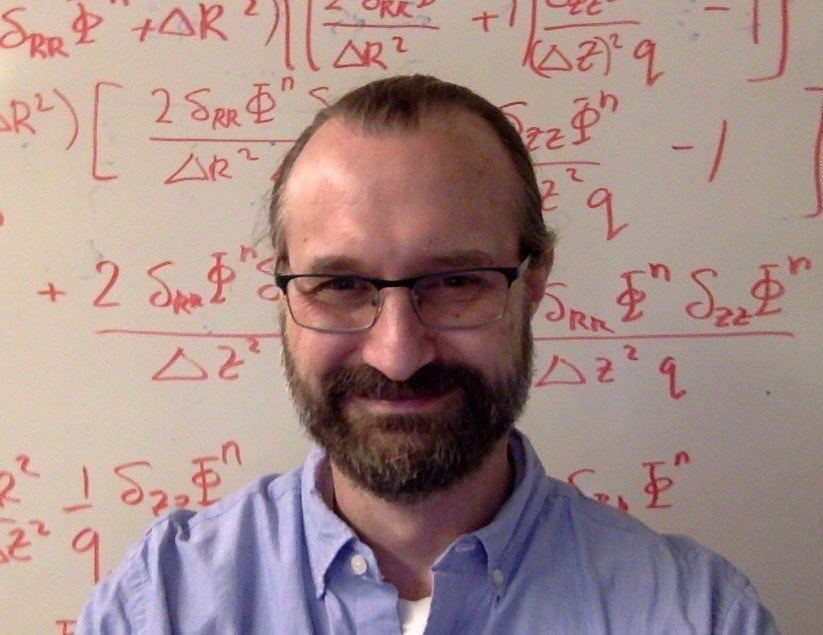‘People say this is the new normal but this is just a stop on the way to worse things if we don’t reduce emissions’

09/19/2023
2023 may be the worst year right now in terms of climate disasters but what possibly lies ahead could make this look like one of the better ones, according to a climate scientist.
The ongoing year has been marred by a series of unprecedented climate events, including prolonged wildfires, extreme heat waves and devastating flash floods and storms.
“It’s the worst year right now, but 10 years from now, 15 years from now, if we continue to increase emissions, this might look like a good year,” Mathew Barlow, a professor of climate science at the University of Massachusetts Lowell, told Anadolu.
Referring to the record-shattering extreme weather events this year, Barlow pointed out that all of this has happened with just a little more than a degree of global warming.
“We’re on track for considerably more warming if we don’t rapidly cut our emissions,” he said.
He emphasized that all human-caused greenhouse gas emissions need to be dramatically and rapidly reduced.
“Sometimes people say this is the new normal, but this is just a stop on the way to worse things if we don’t reduce emissions,” he added.
The climate scientist attributed the current year’s severity to an El Nino, the weather phenomenon that makes ocean waters warmer than usual.
“I hope that people are starting to understand that all these systems are connected and what happens in one part of the world should be important to people in all other parts of the world,” said Barlow.
For instance, this summer, the US dealt with intense wildfire smoke from Canada, and there was not any part which was not affected, he added.
‘Supercharged’ extreme weather
Regarding the storms and floods that have ravaged countries this month, he said global warming has intensified extreme rainfall events.
The worst of these disasters has been in Libya, where thousands have been killed in catastrophic floods.
Barlow said these weather events were “unusual in terms of intensity.”
While individual storms themselves are “not new,” he said they have been “supercharged … with climate change,” which has “heightened the odds that we will get more of them in a short period of time.”
“There really aren’t very many regions that aren’t at increased risk of heavy rainfall,” he said, referring to the recent storms in Libya and Greece, as well as in Brazil, China, Hong Kong, India and the US.
The scientist pointed out that even very dry regions, such as parts of Africa and drier areas of the US, have been hit by floods.
“Some regions are probably more at risk than others but most regions, most land areas of the world have experienced an increase in intense heavy rainfall and are expected to continue. So, pretty much everywhere is at risk of these increases,” said Barlow.
‘Countries like US need to lead’
The world’s current state is a climate emergency and calls for urgent action, he said.
In such disasters, for instance in Libya, the people worst impacted by extreme weather are the vulnerable ones and countries need to ensure they are protected, Barlow asserted.
He called on nations to meet their Paris Agreement obligations, referring to the landmark 2015 pact on cutting down emissions.
He said it is critical for the biggest emitters and polluters to take immediate action.
“Countries like the US need to lead in reducing emissions,” he said, stressing that they have the technology to do so.
In the US, a federal law passed last year, the Inflation Reduction Act or IRA, can actually can make a “significant dent,” as it includes provisions for investment in clean energy sources, said Barlow.
He said countries should look to introduce comprehensive policies that reduce emissions and help people at the same time.
For instance, if public transportation is increased, which is a huge issue in the US, this reduces emissions and makes it easier for lower income people to get to work and also cheaper, according to Barlow.
“If you make buildings more energy efficient, that’s less pollution, but also saving people money to energy costs,” he added.
He reiterated that countries that have the least emissions are the ones suffering the most.
“I hope people look at all these different events, connect the dots, and think that these are not isolated tragedies, but a call to do more on the climate,” he emphasized.
